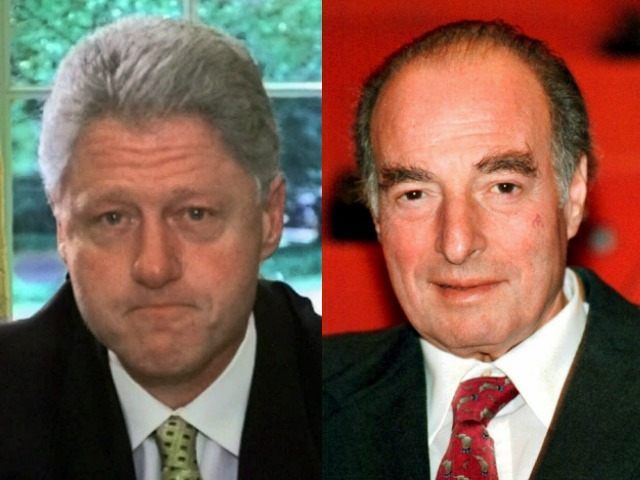Peter Schweizer–Editor-at-Large for Breitbart News, President of the Government Accountability Institute, and best-selling author of the political blockbuster Clinton Cash–writes in the New York Post about Bill Clinton’s presidential pardon for Marc Rich, the businessman who faced criminal prosecution for illegally trading with America’s enemies.
From the New York Post:
Fifteen years ago this month, on Jan. 20, 2001, his last day in office, Bill Clinton issued a pardon for international fugitive Marc Rich. It would become perhaps the most condemned official act of Clinton’s political career. A New York Times editorial called it “a shocking abuse of presidential power.” The usually Clinton-friendly New Republic noted it “is often mentioned as Exhibit A of Clintonian sliminess.”
Congressman Barney Frank added, “It was a real betrayal by Bill Clinton of all who had been strongly supportive of him to do something this unjustified. It was contemptuous.”
Marc Rich was wanted for a list of charges going back decades. He had traded illegally with America’s enemies including Ayatollah Khomeini’s Iran, where he bought about $200 million worth of oil while revolutionaries allied with the Khomeini held 53 American hostages in 1979.
Rich made a large part of his wealth, approximately $2 billion between 1979 and 1994, selling oil to the apartheid regime in South Africa when it faced a UN embargo. He did deals with Khadafy’s Libya, Milosevic’s Yugoslavia, Kim Il-sung’s North Korea, Communist dictatorships in Cuba and the Soviet Union itself. Little surprise that he was on the FBI’s Ten Most Wanted List.
Facing prosecution by Rudy Giuliani in 1983, Rich fled to Switzerland and lived in exile.
What bothered so many was that Clinton’s clemency to Rich reeked of payoff. In the run-up to the presidential pardon, the financier’s ex-wife Denise had donated $450,000 to the fledgling Clinton Library and “over $1 million to Democratic campaigns in the Clinton era.”
As Judge Abner Mikva, a counsel in the Clinton White House and mentor to President Obama, noted that even Obama “was very, very dismayed by the Marc Rich pardon and the basis on which it appears to have been granted.”
But does the story end there? Is it possible the payoffs continued after he left office?
The stench of the scandal in early 2001 sent people scurrying. Days after it was revealed that a senior UBS executive named Pierre de Weck had written a letter to Clinton “to support his request for a pardon,” the Swiss banking giant cancelled its discussions with Clinton about a lucrative post-White House speech, apparently “worried that a large speaking fee would create an appearance of impropriety.”
Even Bill Clinton eventually admitted that the pardon had been “terrible politics.” “It wasn’t worth the damage to my reputation,” he said.
But while the pardon was a political mistake, it certainly was not a financial one. In the years following the scandal, the flow of funds from those connected to Marc Rich or the pardon scandal have continued to the Clintons.
Rich died in 2013. But his business partners, lawyers, advisors and friends have showered millions of dollars on the Clintons in the decade and a half following the scandal.
Read the rest of the story here.

COMMENTS
Please let us know if you're having issues with commenting.